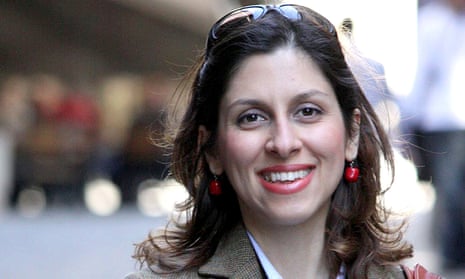Nazanin Zaghari-Ratcliffe, the British-Iranian woman detained in Iran, is suspected to have the coronavirus, her family has said.
The Free Nazanin Campaign said that although there were reports of at least one coronavirus-related inmate death inside Tehran’s notorious Evin prison, staff had refused to test her.
In a statement issued via the campaign, Zaghari-Ratcliffe said: “I am not good. I feel very bad in fact. It is a strange cold. Not like usual. I know the kinds of cold I normally have, how my body reacts.
“This is different. I am just as bad as I was. I often get better after three days. But with this there is no improvement. I haven’t got one bit better.”
She said she had had a severely sore throat for more than five days, after first experiencing a runny nose and a cough.
“Now I have this continual cold sweat, I have a temperature, though not all the time,” she said, telling of shivering every night for the past couple of days and feeling nauseous.
“I have difficulty breathing and pain in my muscles, and fatigue. I do not pant, but I am finding it hard to breathe. And I am just very, very tired. I have a real tiredness, and a heavy head. I am too tired to do anything.
“For a long time this has not felt like a normal cold. These symptoms have lasted almost a week. I know I need to get medicine to get better. This does not go magically.”
Zaghari-Ratcliffe, 41, is serving a five-year sentence for espionage, a charge she has consistently denied. She called her family on Saturday to update them on her health, the wider conditions in the prison ward and the reluctance of the prison to test her for the virus.
Her husband Richard Ratcliffe had earlier raised concerns at Evin prison’s “refusal to test her” for the virus, which has spread rapidly in Iran.
The Foreign Office (FCO) has called on the Iranian government to “immediately allow” health officials into the prison .
The FCO said: “We are urgently seeking information from the Iranian authorities on reports that coronavirus is spreading in Evin prison, including to British-Iranian dual nationals.
“We call on the Iranian government to immediately allow health professionals into Evin prison to assess the situation of British-Iranian dual nationals there.”
So far 43 people in Iran have died from coronavirus – the most in any country besides China. Schools and universities have been closed and concerts and sports events cancelled.
Iran confirmed 205 new cases of the coronavirus over the past day, bringing the total number of confirmed infections to 593,
The family of another imprisoned British-Iranian national, Anoosheh Ashoori, 65, warned this week of plans to transfer him to the prison’s ward 4, where at least three people are suspected to have the virus.
The Iranian judiciary spokesman, Gholam Hossein Ismaili, has responded to growing political pressure over the risk of contagion in prisons by putting prison staff on high alert for signs of the disease.
He said he was activating a range of preventive measures including cutting the number of people being sent to jail and allowing some inmates out on temporary early release.
Several high-ranking officials, including a vice-minister, deputy health minister and five lawmakers, have tested positive for the coronavirus. The rapid spread of the outbreak prompted the government to call on people to stay at home on Saturday.
Iran is preparing for the possibility of testing tens of thousands of people for the coronavirus as the number of confirmed cases in the country rose again, according to an official quoted by the Associated Press.
The death rate from the virus in Iran, about 7%, has caused global consternation and fuelled speculation that the country could be under-reporting the number of cases affecting it. It announced its first infections and deaths from the coronavirus on 19 February.
Tehran has dismissed a BBC Persian report that cited unnamed sources in the country’s health system who claimed at least 210 people in Iran had died in the outbreak – about five times as many as officially acknowledged.
Zaghari-Ratcliffe was detained in April 2016 while trying to depart Iran with her daughter. She was also accused spreading propaganda against the Islamic Republic, charges she denies. United Nations officials have called for her release.
